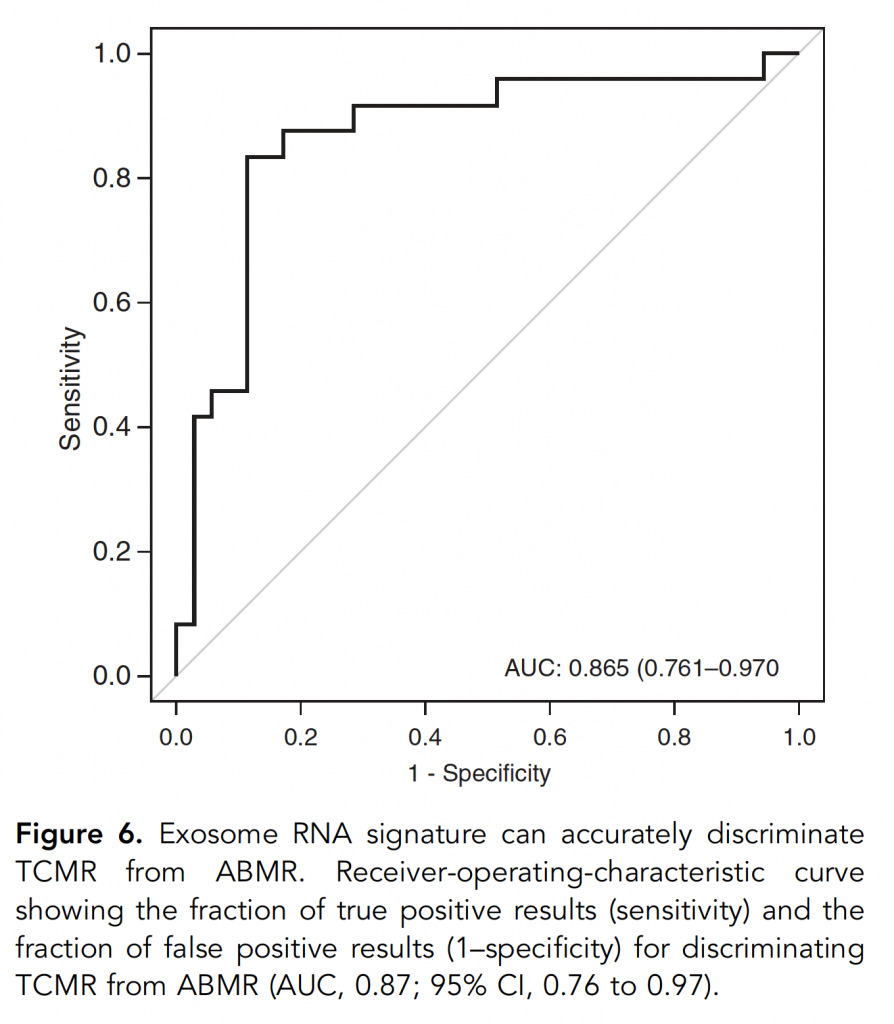J Am Soc Nephrol. 2021 Mar 3:ASN.2020060850. doi: 10.1681/ASN.2020060850.
Background: Developing a noninvasive clinical test to accurately diagnose kidney allograft rejection is critical to improve allograft outcomes. Urinary exosomes, tiny vesicles released into the urine that carry parent cells’ proteins and nucleic acids, reflect the biologic function of the parent cells within the kidney, including immune cells. Their stability in urine makes them a potentially powerful tool for liquid biopsy and a noninvasive diagnostic biomarker for kidney-transplant rejection.
Methods: Using 192 of 220 urine samples with matched biopsy samples from 175 patients who underwent a clinically indicated kidney-transplant biopsy, we isolated urinary exosomal mRNAs and developed rejection signatures on the basis of differential gene expression. We used crossvalidation to assess the performance of the signatures on multiple data subsets.
Results: An exosomal mRNA signature discriminated between biopsy samples from patients with all-cause rejection and those with no rejection, yielding an area under the curve (AUC) of 0.93 (95% CI, 0.87 to 0.98), which is significantly better than the current standard of care (increase in eGFR AUC of 0.57; 95% CI, 0.49 to 0.65). The exosome-based signature’s negative predictive value was 93.3% and its positive predictive value was 86.2%. Using the same approach, we identified an additional gene signature that discriminated patients with T cell-mediated rejection from those with antibody-mediated rejection (with an AUC of 0.87; 95% CI, 0.76 to 0.97). This signature’s negative predictive value was 90.6% and its positive predictive value was 77.8%.
Conclusions: Our findings show that mRNA signatures derived from urinary exosomes represent a powerful and noninvasive tool to screen for kidney allograft rejection. This finding has the potential to assist clinicians in therapeutic decision making.

